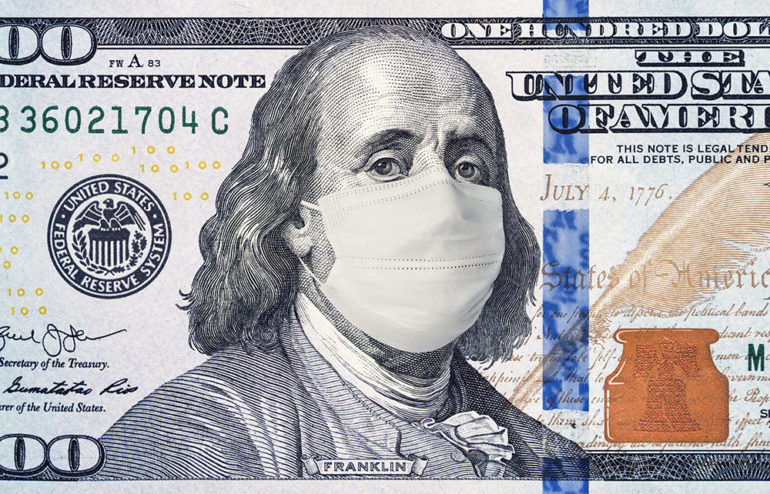PANDEMIC STIMULUS PACKAGE 2
We Don’t Know What We Don’t Know!

Nearly every American has been directly affected by the original $2.2- trillion stimulus package provided for earlier this year as part of the Coronavirus Aid, Relief, and Economic Security (CARES) Act. The financial relief terms and benefits expired and are awaiting further Congressional action.
CARES Act Financial Relief
Here’s a summary of the key provisions of the CARES Act that delivered significant economic assistance to many:
Individuals
- One-time payment: of $1,200 per taxpayer plus $500 for each qualifying child
- Unemployment Benefits: Unemployment insurance expanded if job loss is due to COVID-19. Once regular state benefits expire, eligible recipients may collect up to an additional 13 weeks of benefits plus an additional $600 per week which expired on July 31.
- Evictions: Tenants in federally-backed housing granted 120 days of eviction relief to July 25, 2020.
Note: This eviction moratorium does not relieve tenants the obligation to pay rent.
Businesses
- The Paycheck Protection Program (“PPP”): Authorizes forgivable loans to small businesses to pay their employees during the COVID-19 crisis.
Note: Provisions of the PPP were revised on June 5, 2020, by the Paycheck Protection Program Flexibility Act (PPPFA) in response to complaints about the original bill. Click here for a review of the major provisions of the PPPFA.
- Employee Retention Credit: Designed to encourage businesses to keep employees on their payroll.
- Paid Sick Leave Credit & Family Leave Credit: Small and midsize employers can claim two new refundable payroll tax credits … paid sick leave credit and the paid family leave credit. Each fully reimburses eligible employers for the cost of providing COVID-19 related leave to their employees … and to make that repayment immediate.
- Evictions: Financially strapped apartment landlords with government-backed mortgages can avoid foreclosure if they don’t evict tenants. The order applies to the Fannie Mae and Freddie Mac mortgage companies, which will extend mortgage forbearance to any landlord “negatively affected by the coronavirus national emergency,” according to the Federal Housing Finance Agency.
Congress Stalled … President Acts
Both Democrat and Republican lawmakers have proposed extensions to major provisions of the CARE Act. The Democrat proposal is embodied in a bill called HEROES. The Republican version is the HEALS Act.
However, after considerable negotiations, Congress adjourned having been unable to reach agreement on a bi-partisan compromise to reestablish much needed monetary aid to both individuals and businesses.
One day after coronavirus relief negotiations fell apart in Congress, President Donald Trump signed multiple executive actions intended to help people struggling financially due to the coronavirus pandemic. There are four major provisions of the executive order:
- Suspension of payroll taxes;
- Federal unemployment payments of $400 a week (a $200 cut from the previous $600)
- Deferrals on student loan payments through the end of the year
- Efforts to minimize evictions at federal housing.
Notably: The order does not include another round of stimulus payments.
Both Republicans and Democrats have indicated they are in favor of another round of stimulus payments. Since the decision on a second stimulus was excluded from Trump’s order, it would have to be stand-alone legislation passed by Congress or part of a broader-based compromise bill.
There will likely be delaying actions initiated to prevent President Trump’s executive orders to be implemented. That said, there is much discussion that the president’s executive action may motivate Democrat and Republican leaders to reconvene and agree on extensions to most, if not all, of the CARES Act provisions.
Summary
So, while we don’t know what we don’t know … this is an election year and taxpayers of every stripe are under significant financial stress. Our inclination is to anticipate Congressional resolution sooner rather than later.



 Earlier this year, we reported that President Trump signed the SECURE Act into law raising the Required Minimum Distribution (RMD) age to 72 from 70½ . That proved to be a boon for taxpayers who can afford to delay IRA withdrawals. Delaying receipt of the RMD until age 72 significantly reduced taxable income for many taxpayers. Be sure to
Earlier this year, we reported that President Trump signed the SECURE Act into law raising the Required Minimum Distribution (RMD) age to 72 from 70½ . That proved to be a boon for taxpayers who can afford to delay IRA withdrawals. Delaying receipt of the RMD until age 72 significantly reduced taxable income for many taxpayers. Be sure to 



